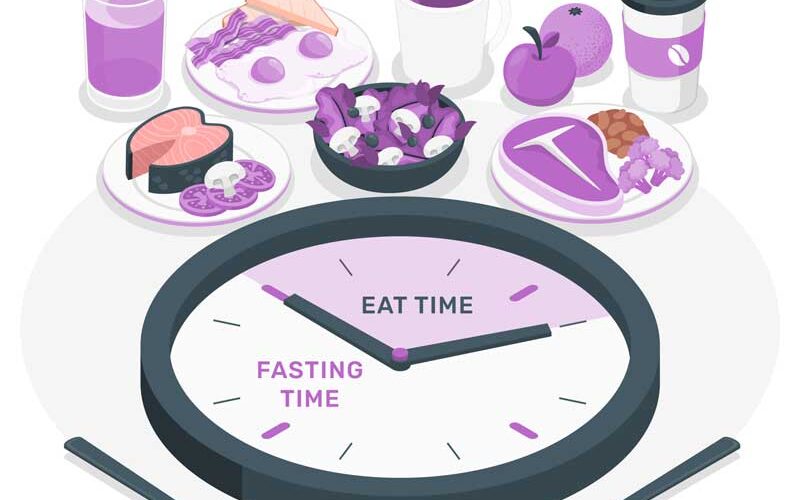Religious fasting practices have been observed across various cultures and faith traditions as a means of spiritual purification and discipline. Muslims observe Ramadan, a sacred month marked by fasting from dawn to sunset, alongside heightened worship and acts of charity. Similarly, Christians participate in fasting during Lent, focusing on penance, prayer, and abstaining from certain foods in preparation for Easter. In Buddhism, fasting aids individuals in cultivating self-control and mindfulness. Hindu fasting, such as Ekadashi, is undertaken voluntarily for spiritual purification and devotion.
Islamic fasting during Ramadan involves abstaining from food and drink during daylight hours, fostering piety and compassion among practitioners. Likewise, Jainism views fasting as a method of cleansing the body and purifying karma. Judaism observes Yom Kippur, a day of fasting and atonement, as a means of seeking forgiveness and spiritual renewal.
Despite the variations in practices and beliefs among these religions, fasting serves as a common thread, reflecting a shared commitment to spiritual growth, discipline, and devotion. These practices not only deepen the individual’s connection to their faith but also foster a sense of community and solidarity among believers worldwide.
Benefits of fasting for mental and physical health
Beyond its spiritual significance, fasting offers a range of mental and physical health benefits. By reducing the circulation of toxins in the bloodstream and lymphatic system, fasting can enhance cognitive function. As the body eliminates toxins, the brain benefits from a cleaner bloodstream, leading to clearer thinking, improved memory, and heightened sensory perception. Moreover, fasting promotes healing and rejuvenation by eliminating diseased cells and reallocating essential nutrients within the body.
While the initial adjustment to fasting may be challenging, the process encourages mental resilience and the ability to delay immediate gratification. Over time, individuals may experience a sense of accomplishment and increased willpower as they successfully navigate periods of fasting. This mental discipline cultivated through fasting can extend beyond dietary habits and positively impact various aspects of life, such as decision-making and goal attainment.
Additionally, intermittent fasting has gained attention for its potential health benefits, including weight loss, improved metabolic health, and reduced inflammation. Some studies suggest that intermittent fasting may enhance brain function and protect against age-related cognitive decline. However, further research is needed to fully understand the long-term effects of intermittent fasting on mental health and cognitive function.
Overall, while fasting remains an integral aspect of religious practice for many, its potential benefits for mental and physical health offer additional incentives for individuals to incorporate fasting into their lifestyle routines. However, it’s essential to approach fasting with caution, ensuring adequate hydration and nutritional intake to support overall well-being during fasting periods.
Advantages of fasting for brain health
Intermittent fasting not only benefits the body and mental function but also has significant advantages for brain health. It improves various metabolic functions crucial for the well-being of the brain. Animal studies have indicated that intermittent fasting may stimulate the generation of new nerve cells, potentially enhancing brain function. Additionally, fasting increases levels of a brain hormone known as brain-derived neurotrophic factor (BDNF), which plays a crucial role in mood regulation and cognitive function.
Research also suggests that intermittent fasting could minimize brain damage caused by stroke. Furthermore, intermittent fasting shows promise in potentially preventing Alzheimer’s disease, the most prevalent neurodegenerative condition globally and currently incurable. A 2023 review suggests that intermittent fasting might delay the onset of Alzheimer’s or mitigate its severity. Animal studies have also demonstrated the protective effects of fasting against neurodegenerative disorders such as Parkinson’s and Huntington’s diseases.
The potential benefits of intermittent fasting for brain health underscore its significance beyond religious and spiritual practices. By enhancing metabolic functions, promoting the generation of new nerve cells, and increasing levels of neuroprotective hormones, intermittent fasting offers a holistic approach to supporting brain health and potentially mitigating the risk of neurodegenerative conditions. However, further research, particularly in human studies, is necessary to fully understand the mechanisms underlying these benefits and to determine the optimal fasting protocols for brain health maintenance and disease prevention.
Conclusion
In conclusion, fasting holds significant cultural and spiritual importance across religious traditions worldwide. While traditionally practiced as a form of spiritual discipline and devotion, fasting also offers potential benefits for mental, physical, and brain health. By reducing toxins in the body, fasting promotes cellular repair and enhances metabolic functions crucial for brain well-being. It contributes to improved cognition and mood regulation and may offer protection against neurodegenerative diseases.
However, it’s essential to acknowledge that further research is needed to fully understand the extent of these benefits and their long-term implications. Additionally, fasting may not be suitable for everyone and should be approached with caution, particularly for individuals with underlying health conditions. Overall, while fasting remains an integral aspect of religious observance for many, its potential health benefits underscore the importance of considering fasting as more than just a spiritual practice but also as a holistic approach to enhancing overall well-being.
References
Gunnars, K., 2023. What Is Intermittent Fasting and How Does It Work? [online] Available at: <https://www.healthline.com/nutrition/10-health-benefits-of-intermittent-fasting> [Accessed 21 March 2024].
KCRA., 2023. Why the religious fast for Ramadan, Lent and other holy days. [online] Available at: <https://www.kcra.com/article/why-the-religious-fast-for-ramadan-lent-and-other-holy-days/43404536#> [Accessed 21 March 2024].
WebMD Editorial Contributors., 2021. Psychological Benefits of Fasting. [online] Available at: <https://www.webmd.com/diet/psychological-benefits-of-fasting> [Accessed 21 March 2024].
